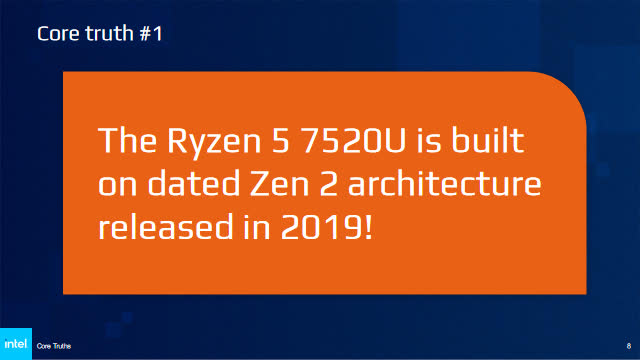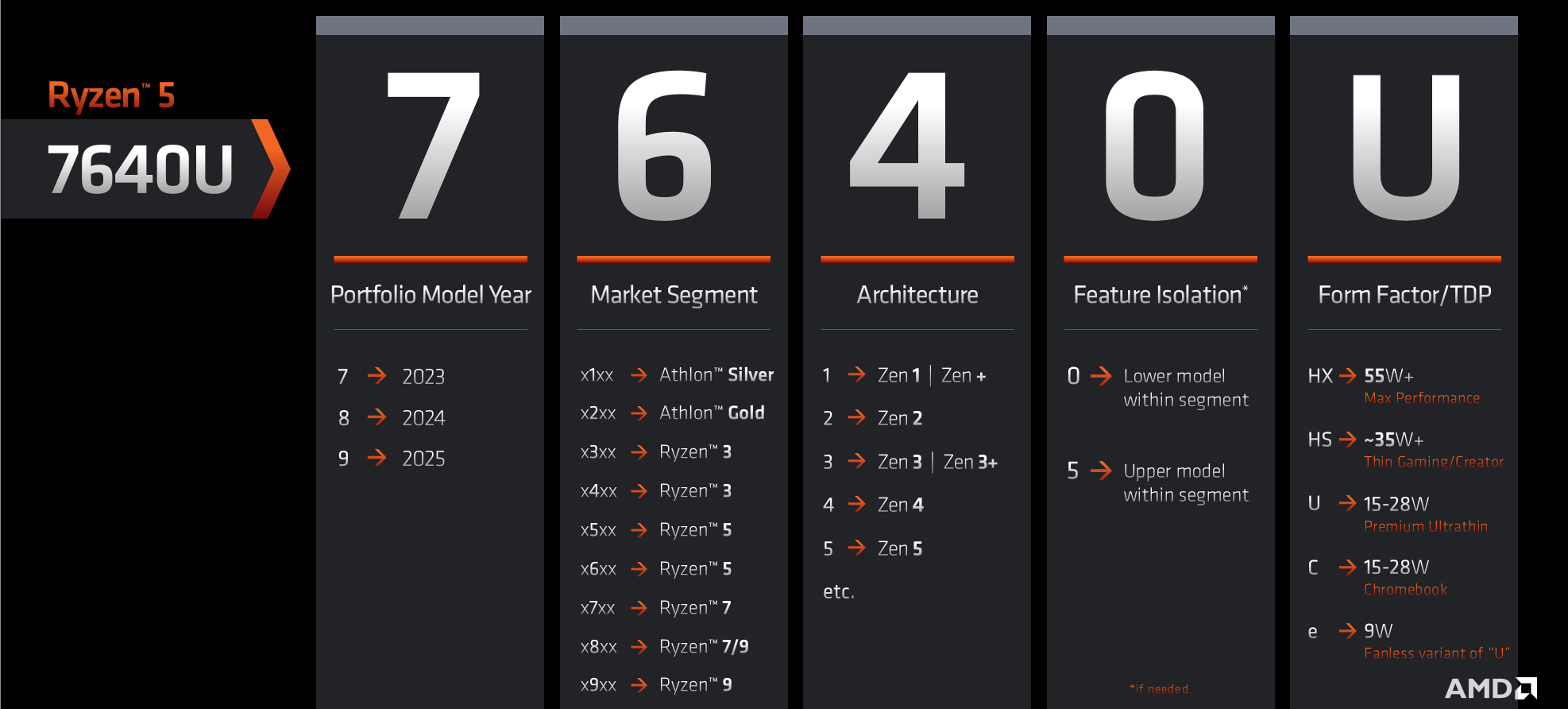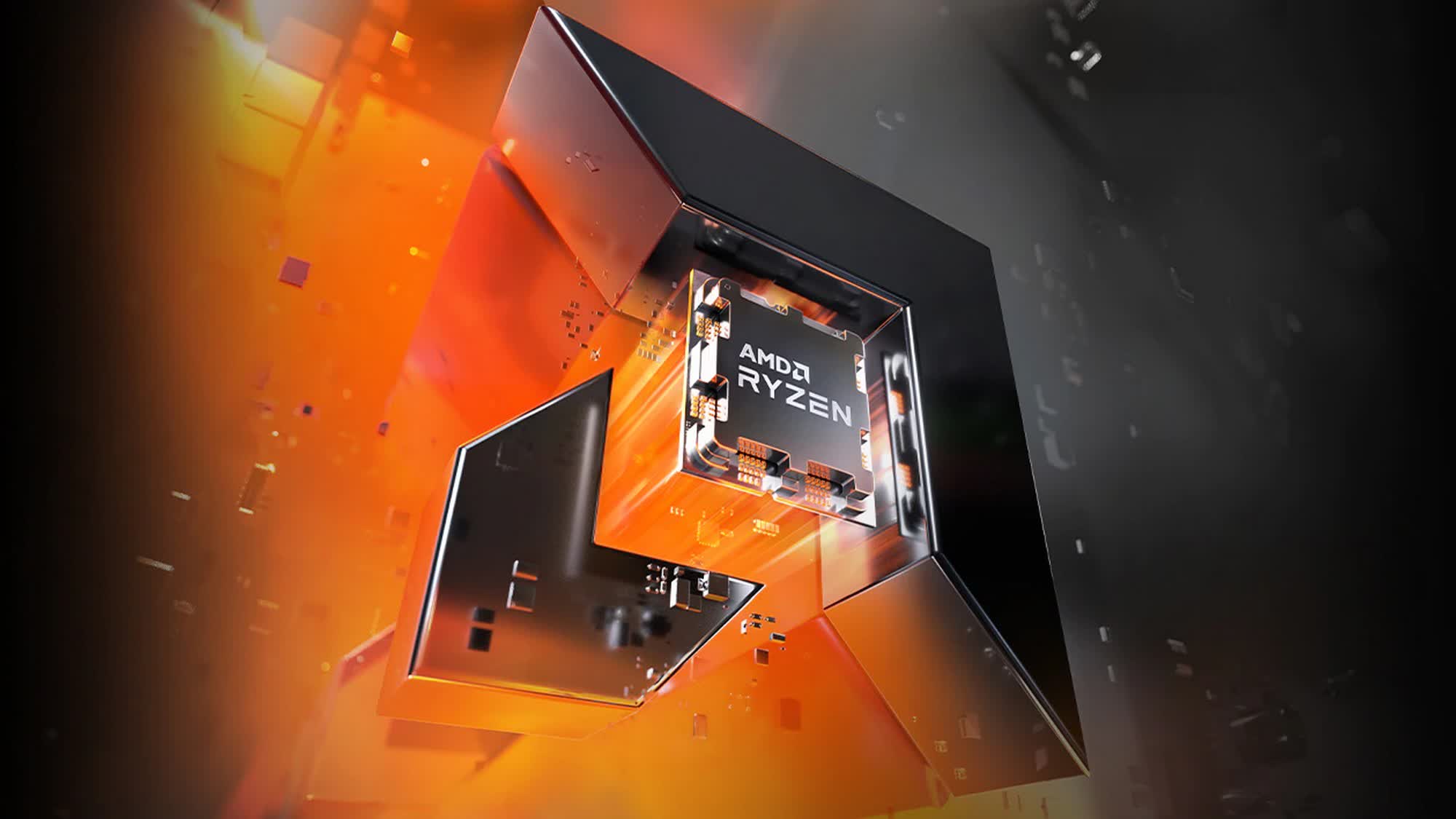A hot potato: The labels on CPUs can be confusing for casual consumers, especially as both major vendors transition to new designation systems. While Intel and AMD are trying to make their processor names less ambiguous, Intel is accusing the competition of outright misdirection.
A PDF recently emerged on Intel's website accusing AMD of misleading its customers with its new laptop Ryzen naming scheme. Introduced last year, Team Red's designation for laptop processors differs from those designed for desktops. While the names contain more information than their predecessors, they can be confusing, which the company admitted earlier this year.
Currently, Intel's PDF isn't directly accessible, but Neowin and known leaker Momomo grabbed a few slides in which the company compares AMD to snake oil salesmen. The primary criticism is how the digits on the latest Ryzen CPU names carry a different meaning from their desktop counterparts.

All desktop 7000 series Ryzens use AMD's latest Zen 4 architecture. However, in the company's new laptop naming system, the seven as the label's first digit indicates that it was released in 2023. Intel criticizes how the recently released Ryzen 5 7520U uses AMD's Zen 2 (instead of Zen 4) architecture from 2019.
Team Red's detailed instructions on its new naming scheme explain that the third digit, in this case a two, specifies the architecture generation. Meanwhile, the second digit indicates the performance tier, with a five representing a Ryzen 5. The fourth and final digit differentiates between a lower or higher-end model, while the letter specifies wattage.

Thus, the 7520U is a 2023 lower-end Ryzen 5 chip using Zen 2 architecture limited to 15-28W. Unfortunately, AMD can't fit its directions onto each product's packaging, so the company devised another system highlighting Zen 4 processors with orange stickers.
Although AMD might confuse some customers, Intel's comparison won't hold water much longer. The document compares the 7520U to its Core i5 1335U, which uses Intel's current naming scheme. Starting with the launch of the laptop-centered Meteor Lake series later this month, Intel will switch to a new style that drops the well-known "i" designators. Instead, the company will label its mainstream CPUs Core 3, Core 5, and Core 7 and its higher-tier products Core Ultra 5, Core Ultra 7, and Core Ultra 9. While Intel's new labels contain less information than AMD's, they present a less drastic and potentially less confusing change.
